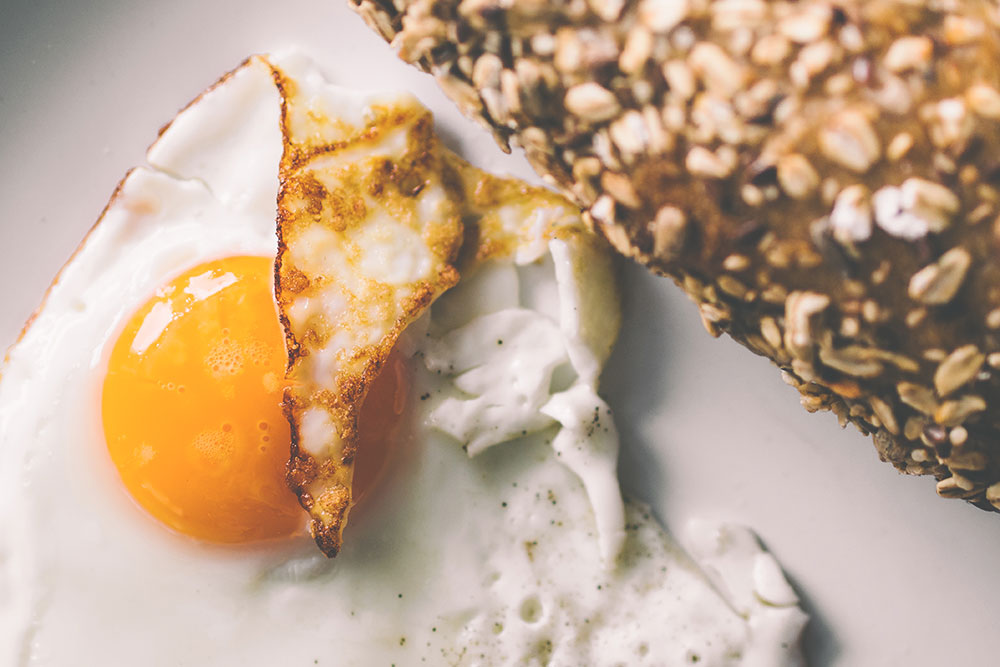For endurance runners who are training, its important to cover all of your essential fueling needs. Let’s break down what’s needed and where to get it from.
BY: CLAIRE SHORENSTEIN, MS, RDN, CDN
When you think about marathon nutrition, you may conjure up images of gels, chews, protein bars, electrolyte drinks, and lots of pasta. While sports nutrition products and carb-rich foods certainly have an important place in training, you must also take a careful look at your everyday eating patterns to ensure you are fueling optimally for overall health and performance.
Consistent good nutrition – what you consume throughout the day, as well as just before, during, and right after exercise – forms the base of a successful sports nutrition diet.
So how do you find the right balance of macro- and micronutrients?
Eating for endurance requires more than simply consuming enough calories to offset all the energy that you are burning through exercise. You have to make sure those calories are coming from the right food sources and in sufficient quantities to feel satisfied, stay healthy, and recover well as you increase your mileage.
Let’s break it all down.
CARBOHYDRATES
Carbohydrates are needed in the greatest amount, as they break down into glucose (sugar) to give us energy. They are the body’s preferred fuel source, especially during moderate and high intensity exercise, when oxygen is less available.
Any glucose that isn’t used right away is stored as glycogen in the muscle and liver and broken down later when needed, such as during sleep and exercise. These stores are limited, so you have to eat enough carbs regularly to stay well-fueled and preserve your lean body mass, especially on heavy training days.
Good sources: Carbs that provide additional nutrients, such as whole grains, starchy veggies, fruits, beans/legumes, and low-fat/full-fat dairy.
Note: Simple carbs like white rice, plain pasta, sports nutrition products etc. are more easily digested and may be better tolerated right before exercise, although many athletes can tolerate higher fiber foods just fine.
FATS
Fat also provides energy but less efficiently, as it requires greater amounts of oxygen to break down. As a result, the body relies upon fat more heavily as a fuel source during lower intensity exercise. Fat stores are unlimited, with even the leanest athlete having tens of thousands of fat calories available to burn!
Fat keeps you fuller longer and certain fats (Omega-3’s) help fight inflammation – both are crucial during training. However, be cautious about consuming fat right before or during exercise. Although you can train your body to tolerate some fat and become more efficient at burning it, fat slows down digestion and may cause gastrointestinal distress.
Good sources: Unsaturated fats, such as olive oil, avocado, nuts/seeds, fatty fish, and portion controlled amounts of saturated fat from coconut and dairy.
PROTEIN
Protein is needed to build and repair body tissues, especially during heavy training. Endurance athletes need to eat more protein than the average person. Research supports consuming between 1.4 to 1.8 grams of protein per kilogram of bodyweight. Include protein as part of all meals and snacks to feel satisfied and optimize ongoing recovery.
Good sources: Real foods such as lean meat, fish, poultry, beans/legumes, low-fat/full-fat dairy, whole eggs, nuts, and organic soy (tofu, tempeh, edamame)
VITAMINS & MINERALS
Essential vitamins & minerals support growth, tissue repair, oxygen transport, and energy metabolism. While all micronutrients play key roles in the body, adequate amounts of iron and calcium are particularly important in maintaining health among athletes. Unless you have a valid reason to take supplements – for example, you follow a restrictive diet, have a known deficiency or other medical condition, or are pregnant – you likely do not need them.
Good sources: A variety of nutrient dense foods (colorful fruits/vegetables, whole grains, nuts/seeds, different protein sources) to obtain a wide range of vitamins and minerals.
Generally speaking, try to create nutritionally balanced meals and snacks to support your training (what you eat right before and during runs will skew more towards carbs).
For example, rather than eating two pieces of whole-wheat toast with mashed avocado for breakfast, put some eggs on top to include a high quality protein source. Similarly, instead of having a banana as an afternoon snack, add some almonds, peanut butter, or Greek yogurt for a dose of healthy fat and fiber.
Good luck, and happy training!
Adapted from the original article.
HEADER IMAGE: PAWEL KADYSZ
Claire Shorenstein, MS, RDN, CDN is a NYC-based Registered Dietitian Nutritionist and Road Runners Club of America certified coach. As an avid runner over the past 20 years, Claire has competed in numerous team and solo running events from the 5km to 50-mile distance, and combines her personal running experience and expertise to help athletes achieve their performance goals. Learn more about Claire at Eat For Endurance.


The dangers of not consuming enough sodium are very rarely considered.